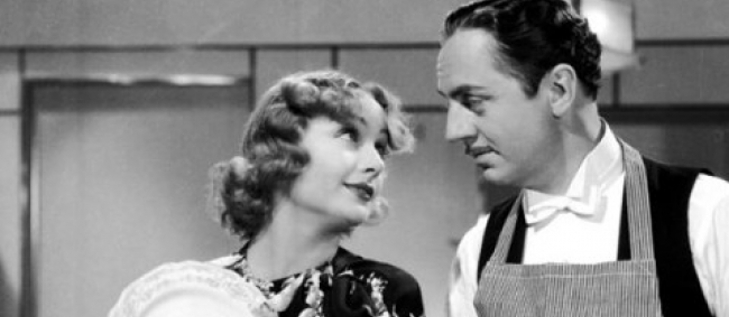Thinking about good things to read and stream in these days of COVID-19, I pulled those four Great Movies books by Roger Ebert down off the shelf. It’s always good to hear his voice again. Poking around at the Open Culture and Internet Archive sites, I then found 10 free films Ebert anointed—a lot of them silent, all undeniably “great” (though, really, that's for you to say—you may disagree.) Alongside links to the films themselves (and the sites’ own capsule descriptions), I’ve linked to Ebert’s essays. I’ve only written about one of these films myself, Beat the Devil, in which case I’ve linked to my own essay, as well. It’s not easy saying something refreshing about the most celebrated films, which is part of why I like to study how Ebert gets to the heart of the matter. For dedicated cinephiles, to curl up with these films, with the accompanying essays as companions, is to renew your vows—and, perhaps, the debate. For first-timers, it's a fine way to build a strong foundation for your own personal temple of cinephilia.

Detour - "Edgar Ulmer's cult classic noir film shot in 6 days." (1945) Great Movies essay.
My Man Godfrey - "Gregory La Cava’s screwball romantic comedy. Ditzy socialite with a heart of gold, Irene Bullock (Carole Lombard) finds 'forgotten man' Godfrey Smith (William Powell) in a scavenger hunt. Eventually Godfrey is taken in as the family butler for the Bullocks and screwball antics and romance ensue." (1936) Great Movies essay. (This lustrous film really demands the Criterion Blu-Ray: the version I offer here is only a shadow).
The General - "Orson Welles said that Buster Keaton's The General is 'the greatest comedy ever made, the greatest Civil War film ever made, and perhaps the greatest film ever made.'" Alternate version here (1926) Great Movies essay.
Beat the Devil – "Directed by John Huston and starring Humphrey Bogart, the film is something of a comic and dramatic spoof of the film noir tradition." (1953) Great Movies essay. Read my essay, here. It's unclear to me whether that 4K restoration is streaming anywhere: I know Twilight Time put it out on a Blu-Ray, worth looking for.
Broken Blossoms - "Silent film directed by D.W. Griffith and starring Lillian Gish." (1919) Great Movies essay.
Greed - "Erich von Stroheim’s silent drama originally ran 10 hours, but was eventually hacked down to two. It follows a dentist whose wife wins a lottery ticket, only to become obsessed with money." (1924) Great Movies essay. The version at the Internet Archive is so murky as to be almost unwatchable, and it has Italian title-cards. There’s an interesting and crisp-looking alternate version here, with a live score and a “live edit” performed at the Marigny Opera House in New Orleans. (The gilded bits are tinted gold, a not ineffective treatment.) I’m usually apprehensive when other “artists,” or even artists sans air quotes, tamper with the original vision. In this case maybe it’s perhaps not so egregious, in that no original version can be said to exist.
Metropolis - "Fritz Lang’s fable of good and evil fighting it out in a futuristic urban dystopia. An important classic." An alternate version can be found here. (1927) Great Movies essay.
Battleship Potemkin - "Directed by the great Russian director, Sergei Eisenstein. One of the most influential propaganda films of all time." Alternative version here. (1925) Great Movies essay.
M - "Classic film directed by Fritz Lang, with Peter Lorre. About the search for a child murderer in Berlin." (1931) Great Movies essay.
Safety Last - "Starring Harold Lloyd, the film features one of the most iconic scenes from the silent film era: Lloyd 'clutching the hands of a large clock as he dangles from the outside of a skyscraper above moving traffic.'" (1923) Great Movies essay.